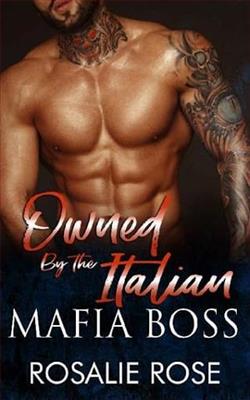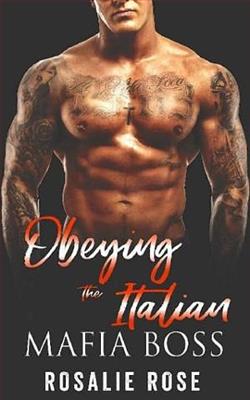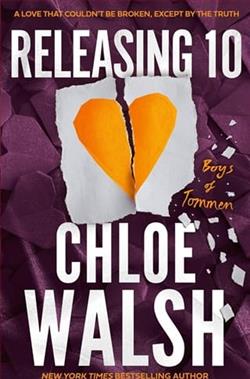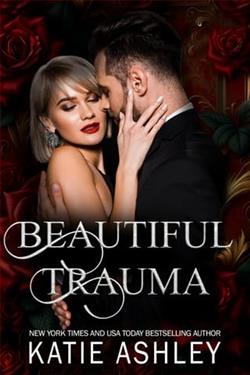Page 4 of The Strawberry Thief
That was a joke. I realize that now. There’s no such thing as Busybody Syndrome. You can’t die from being a gossip. Narcisse was often funny like that. You couldn’t always tell if he was joking. But he was my friend, ever since that day when he caught me stealing his strawberries. I didn’t know Narcisse before then. I thought he was just a grumpy old man who sometimes came into the chocolate shop. Never bought much – an apricot heart, or a single slice of cake. But Maman liked him. Roux liked him, too. And he never laughed at me, or talked to me as if I was deaf, or talkedaboutme as if I didn’t understand, the way Madame Clairmont always does.
I try to tell her I like to sign. Not because I’m deaf – BAM! – or because I can’t talk in the regular way, but because it’s safe, and neat, and doesn’t get in the way of things. Madame Clairmont doesn’t care. She’s like a little dog, all fluff, all fuss. She makes me want to bark at her. And when she’s talking to Maman, it’s always in that deathbed voice.How’s poor little Rosette today? Vianne, I don’t how you cope.And Maman always answers: ‘Rosette ishowI cope, Caroline.’
Narcisse and I became good friends six summers ago, when I was nine. One day, when Pilou was at school, and I was with Bam by the riverside, I decided to explore. Going over the fields, I found a little path to a wood, surrounded by a chain-link fence and a gate with a padlock, to keep people out. I’ve never liked locked things. I always want to look inside. And so I did: there was a place where the wire had pulled away from the post. Not big enough for an adult to pass, but easy enough for me to squeeze through. Bam, of course, can go anywhere. Like the wind, he goes where he wants. And there were so many places to go. Thickets of bramble. Fallen trees. Ferns, and violets, and gorse, paths all lined with soft green moss. And in the very heart of the wood, there was a clearing, with a circle of stones, and an old well in the middle, next to a big dead oak tree, and everything – fallen branches, standing stones, even the well, with its rusty pump – draped and festooned and piled knee-high with ruffles and flounces of strawberries, with blackbirds picking over the fruit, and the scent like all of summer.
It wasn’t like the rest of the farm. Narcisse’s farm is very neat, with everything set out in its place. A little field for sunflowers: one for cabbages; one for squash; one for Jerusalem artichokes. Apple trees to one side; peaches and plums to the other. And in the polytunnels, there were daffodils, tulips, freesias; and in season, lettuce, tomatoes, beans. All neatly planted, in rows, with nets to keep the birds from stealing them.
But here there were no nets, or polytunnels, or windmills to frighten away the birds. Just that clearing of strawberries, and the old well in the circle of stones. There was no bucket in the well. Just the broken pump, and the trough, and a grate to cover the hole, which was very deep, and not quite straight, and filled with ferns and that swampy smell. And if you put your eye to the grate, you could see a roundel of sky reflected in the water, and little pink flowers growing out from between the cracks in the old stone. And there was a kind of draught coming up from under the ground, as if something was hiding there and breathing, very quietly.
After that first time, we went there a lot. Bam and I would eat our fill, sitting by that disused well, and sometimes we’d play, and run, and sing, and chase around like squirrels. Sometimes I would pretend that the circle of stones was a fairy ring, and that the well was a wishing well, that would make my dreams come true. On those days I would drop a coin or a stone or an acorn through the rusty grate, and listen for the splash they made, deep, deep down in the darkness. And I wished for a friend to play with, and for a jumbo drawing-book, and a big box of coloured pencils, the ones that come in a hundred colours, and for Anouk to come back soon, and for us to be a family again.
And then one day I got a surprise. I’d just been picking strawberries. There was juice all around my mouth, and a necklace of strawberry-leaves around my neck. I’d taken a big glass jar from the shop. I was thinking I could make some jam, and I was singing a jam-making song:Jam-Bam-Bam, Bam, badda-jam—
And then there came a sound from the path, something like a growling dog, and it was Narcisse, in pyjamas and boots under his old brown overcoat, glaring me from beetle brows and looking more like a bear than ever.
‘What the hell are you doing here! This is private property!’
I’d never heard him shout before. I thought perhaps he was angry because I’d taken the strawberries. So I dropped the jar and ran away as fast as I could. I heard him shouting after me, sounding sorry and angry and sad, but I kept running, through the wood, and under the broken fence and along the hedge towards the river.
I didn’t go back to the wood after that. I was too afraid of Narcisse. I thought that maybe his coming there had been a kind of Accident. Instead I played by Les Marauds, and kept to my side of the river, and watched the farm from behind the hedge, and saw Narcisse with his tractor.
But three days later, he came by the shop. I was under the table –shhh!– playing with my button-box. The doorbell rang, and I saw his boots from under the red-and-white tablecloth. He walked like a bear, very heavy and slow. I knew at once it was Narcisse. I hoped he’d only come to buy chocolates, and not to tell Maman about me playing in his private wood. So I went into a little mouse, all quiet and still. The boots came in, and stopped just by the table. I could smell the scent of them, leather and the summer soil. Then he lifted the tablecloth, and I saw a basket in his hand.
The basket was filled with strawberries.
I made a little warning sound, like a rat in a corner.
He smiled and put down the basket. I could smell the strawberries now. Then he said: ‘For the strawberry thief. Take as many as you like.’
For a moment I thought that if I closed my eyes, he wouldn’t be able to see me. But when I opened them again, he was still there, looking under the tablecloth with his giant beard like a bushy cloud.
‘I owe you an apology,’ he said in quite a gentle voice. ‘I didn’t mean to frighten you, or to make you run away. I hope we can be friends, you and I.’
I made a mocking blackbird call and stuck out my tongue.
‘Your mother says you like to draw. I brought you this.’ And he handed me a brand-new drawing-pad and a box of a hundred pencils.
I made a little excited noise, and all the cups on the table danced. Maman said; ‘Rosette, be careful!’ But I was too excited to stop. The fairy stones and the wishing well had sent me what I wanted. I made Bam do a victory dance, and then, on the first page of my book, I did a quick little drawing of a monkey hugging a big brown bear, and signed:Thank you. I love them!
Narcisse laughed. ‘You’re welcome. Use the wood as much as you like. It’s a special kind of place, just for special people. Eat the strawberries. Climb the trees. But keep away from that old well. I don’t want you falling down there.’
I gave him a nod from underneath the tablecloth.
‘Promise me you’ll be careful, Rosette. I want to be sure you’ve understood.’
‘Promise,’ I said, in my shadow-voice, to show him I was serious.
He held out his hand. ‘Then we have a deal.’
Of course, I wouldn’t have fallen in. I never put my weight on the grate. But I couldn’t keep away from the well. I’d have to keep on dropping coins until Anouk was back again.
After that, the strawberry wood became my favourite place to go. In the summer I picked the fruit, and ran up and down the alleys of trees, and in autumn, collected acorns, and lay on my back watching the sky through the open branches. In the spring, I picked violets, and wild garlic by the riverbank. In winter I built tunnels under the barrows of brambles, and all year round I watched the well, and listened to its breathing, and sometimes dropped a coin or a stone into the water, and whispered into the darkness.
And that’s why I wasn’t really surprised when Maman told me that Narcisse had left me the strawberry wood, and the circle of stones, and the wishing well. He must have meant them for me from the start. Because there’s a story in that wood, a story that he wants me to know. Maman always says that stories are what keep us alive; the stories people tell us, and scatter like thistledown on the wind. And stories are all that’s left of us when we’re gone, she tells me, as the cold north wind sings its mournful song, over the sound of the melting snow.
I know a story about a bird that goes between the land of death and the land of the living. This bird carries messages from the dead to their loved ones. A man is mourning his dead wife. Every day, the messenger bird comes to sit on the man’s window-ledge, and sings. It is a song of love and hope; a message from beyond the grave, telling him his wife loves him still, and that she is waiting. But the man, in his grief, does not understand. All he understands is loss. And so he shoots the messenger bird, to silence it forever. But the other birds have already learnt its lovely song. And so the song passes through forests and fields, and even over the ocean, until the message of undying love is sung by all the birds in the sky.
Narcisse’s shop is empty today; the window all covered with newspaper. Maman says that’s because ghosts can be trapped in reflections. That must be true, because when someone dies, they cover the mirrors with blankets. They sometimes stop the clocks, too, so that the dead can get into Heaven before the Devil knows the time. But Reynaud says that isn’t true. He says he doesn’t believe in ghosts. I sign:What about the Holy Ghost?But I don’t think he understands. And Narcisse didn’t believe in God or the Devil, or even ghosts. Do you have tobelievein ghosts to become one? Is he nowhere now? Or is he trapped behind the glass of the flower shop window?















